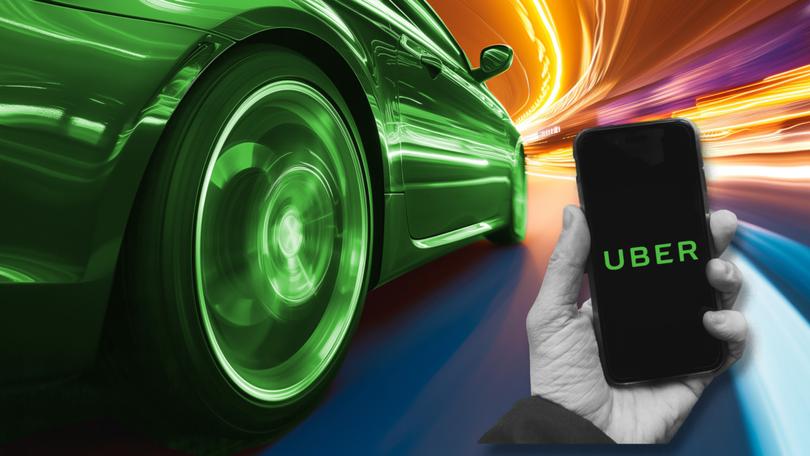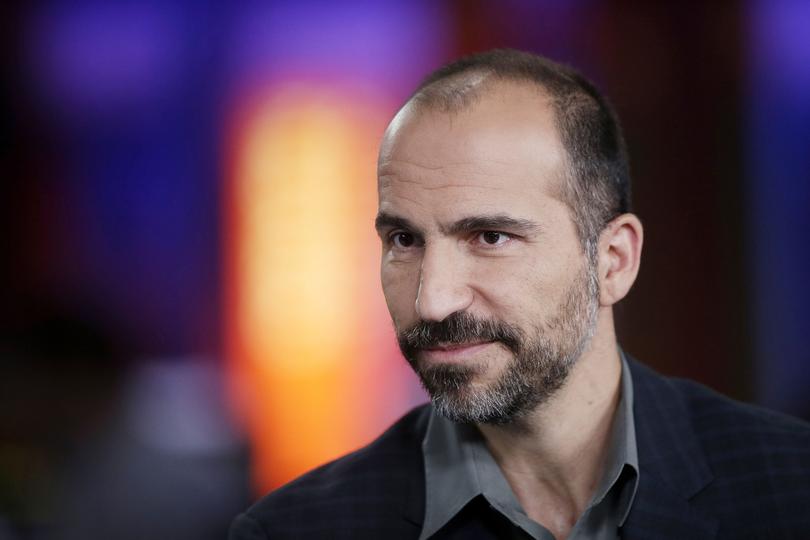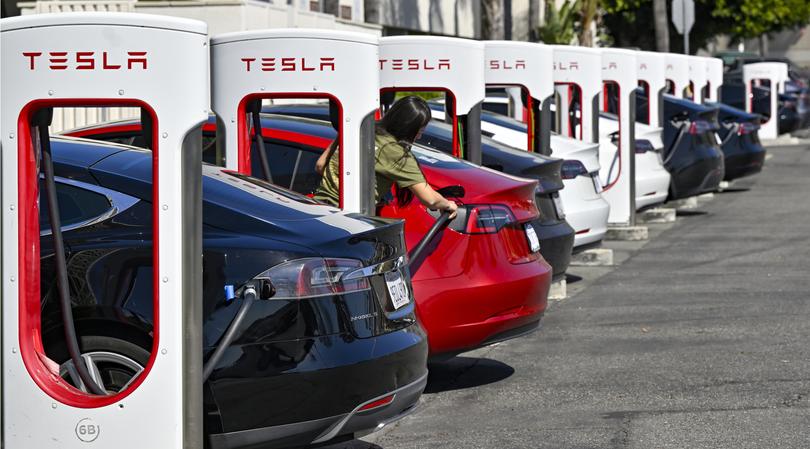We need more: Uber boss Dara Khosrowshahi lauds cheap Chinese-made EVs
The boss of Uber claims politics is determining people’s feelings on EVs and dampening enthusiasm for their take-up.

Uber’s CEO Dara Khosrowshahi has praised “cheap Chinese vehicles” and called for stronger electric vehicle mandates, despite a US-led backlash to Beijing’s dominance of the market on both supply and security grounds.
And he said that politics was determining how people felt about EVs and dampening enthusiasm for their take-up.
He made the comments at the company’s annual sustainability event held in London where he announced that hybrid vehicles would no longer qualify as green rides in Australia from next year as part of an expansion of Uber’s green-only service available in multiple other countries where take-up of EVs is higher.
Sign up to The Nightly's newsletters.
Get the first look at the digital newspaper, curated daily stories and breaking headlines delivered to your inbox.
By continuing you agree to our Terms and Privacy Policy.Mr Khosrowshahi said despite an overall trend in people backing away from battery-powered cars, when it came to Uber drivers were still rushing to adopt the zero-emissions vehicles.
“EVs like many things have become a politically charged issue,” he said at an event in London.
“How you vote often determines how you feel about EVs.
“But here at Uber, we see people from across the political spectrum everywhere we operate choosing EVs, because they’re just plain better, and no matter what your political beliefs — better is better.”
He said that since Uber had set itself the target of being zero-emission by 2040, four years ago, the number of drivers using electric vehicles had accelerated from 10,000 to 182,000.
“So at a time when people are backing away from an all-electric future, Uber is charging ahead,” he said.
“We can’t do this alone … the reality is that we will only reach our zero-emission goals if policymakers and other businesses do their part as well.
“We need more affordable EVs. We need stronger EV mandates.”
He also called for incentives and charging infrastructure to ensure that EVs were not just for the wealthy.

Rebecca Tinucci who runs Uber’s sustainability division said the consumer hesitation had a domino effect.
“We’re seeing carmakers back away from their EV commitments, worried that EVs are just for early adopters and that a broader base of customers just isn’t there.
“And when carmakers back away, charging providers hesitate too.
“And of course EV-curious consumers won’t go electric if there’s no place to charge their vehicles, so the whole industry kind of gets stuck.”
Ms Tinucci left Elon Musk’s Tesla and joined Uber to run its sustainability division in September. She said the ridesharing company, worth US$160 billion was the only business capable of driving the change necessary for EVs to achieve critical mass.
Uber is offering discounts and other incentives in partnership with suppliers as part of its 2040 mission.
But Uber’s ambitions could be stymied by a US-led backlash to China’s dominance of the global EV market — something Australia has declined to copy.
China is poised to export a record six million cars this year, up from one million just four years ago, according to data crunched by the global advisory firm Dunne Insights, which specialises in analysing the global EV market.
The average price of a Chinese-made EV is $19,000 — which consultant Michael Dunne said was less than half the average price of a new car in America and Europe.

EVs have become both a geopolitical point of tension as well as a quasi-culture war in many Western jurisdictions.
The Biden Administration has led the pushback by imposing tariffs on Chinese-made EVs, granting US carmakers enormous subsidies to try and compete and proposed banning Chinese hardware and software installed in the cars because of security concerns.
In an interview with the BBC, Mr Khosrowshahi said “cheap Chinese vehicles are a good thing for the environment.”
He praised Chinese vehicles as cheap as well as good quality and said that from a “climate view” the tariffs “would be a negative.”
Canada and the European Union have also imposed tariffs but the UK and Australia have neither imposed duties nor publicly agreed with the United States about the security risks.
Republican Presidential nominee Donald Trump says he favours combustion engine cars and has said he will scrap President Biden’s target that half of all new vehicles sold in the United States be electric by the end of the decade.
Mr Trump’s opposition puts him at odds with that of his major political backer Elon Musk — the world’s richest man and CEO of Tesla — which is the world’s largest EV manufacturer.
Half of Tesla’s production comes from China.
Australia does not have a mandate but has established a carbon credit or trading scheme that incentivises car suppliers to offer more fuel-efficient models over time.
Australia’s slow adoption of EVs meant it was a laggard when it came to green rides on Uber.
The UK was the world leader with one-third of all Uber rides being completed in electric cars compared to just five per cent of kilometres travelled in Ubers in the last quarter in Australia.
Around ten per cent of all kilometres travelled in the US, Canada and Europe were in EVs, according to data supplied by Uber.

